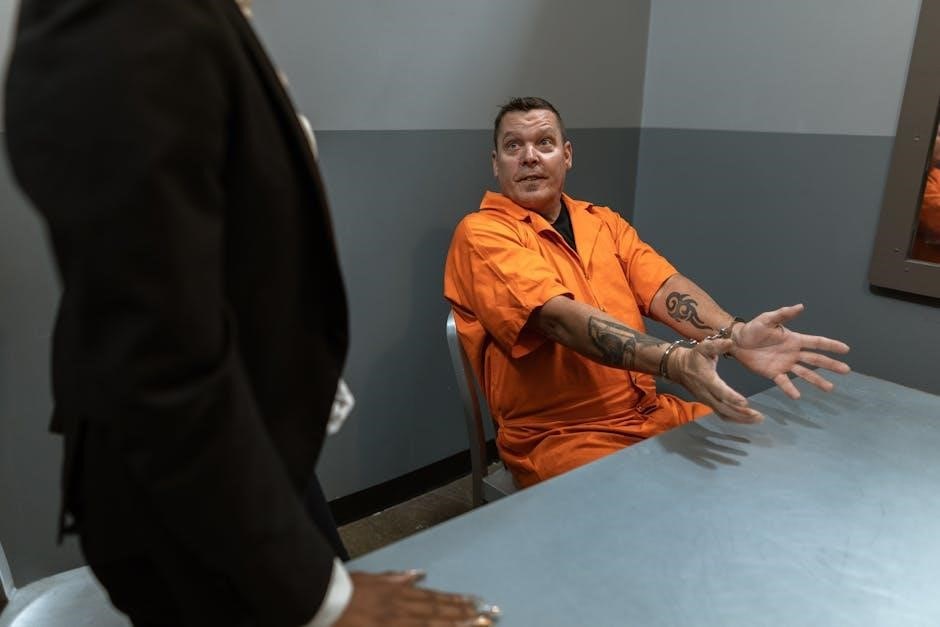
oral history interview questions pdf
Get oral history interview questions PDF for insightful conversations at webmasterstarterkit.com
Oral history interview questions guide individuals through conversations about life experiences and historical events, creating a valuable primary source material for research purposes always.
Definition and Purpose of Oral History Interviews
Oral history interviews are a technique for generating primary source material from personal recollections through recorded interviews, preserving voices and memories of people in history. This method is used to capture unique perspectives and experiences, creating a valuable resource for research and education, allowing individuals to share their stories and insights, and providing a window into the past, with the purpose of preserving historical information and promoting understanding of historical events and cultural heritage, and making it accessible to future generations.
Preparation for the Interview
Research and planning are essential steps before conducting an oral history interview always using relevant questions.
Research and Planning
Conducting research and planning are crucial steps in preparing for an oral history interview, allowing individuals to create relevant questions and topics to discuss, and to understand the interviewee’s background and experiences, which helps to establish a connection and create a comfortable atmosphere, making the interview process more effective and productive, and ultimately leading to a more successful and informative interview, with a clear understanding of the goals and objectives, and a well-structured approach to achieving them, using oral history interview questions as a guide.
Conducting the Interview
Conducting interviews requires effective communication and active listening skills always.
Creating a Comfortable Environment
Creating a comfortable environment is crucial for a successful interview, it helps the interviewee feel at ease and share their experiences openly. A quiet and private space is ideal, with minimal distractions, allowing the interviewer to focus on the conversation and take notes. The environment should be respectful and non-threatening, putting the interviewee at ease, and encouraging them to share their thoughts and feelings, this helps to build trust and rapport between the interviewer and the interviewee, which is essential for a meaningful and informative conversation to take place always naturally.

Sample Oral History Interview Questions
Questions include life experiences, happiest moments, and influential people, providing insight into the interviewee’s life and historical context always needed.
Questions for Anyone
These questions are designed to be asked to anyone, regardless of their background or experiences, and include topics such as life questions, happiest moments, and influences. They are meant to be starting points for conversations and can be tailored to fit the specific needs and goals of the interview. Some examples of questions for anyone include who has been the most important person in their life, what was the happiest moment of their life, and who has been the biggest influence on their life, providing valuable insights always.
Effective Question-Making and Interviewing Skills
Professors require effective question-making and interviewing skills always in oral history projects to gather valuable information and insights from interviewees quickly.
Techniques for Conducting a Successful Interview
Conducting a successful interview requires techniques such as active listening and open-ended questions to gather detailed information. Professors and researchers use these methods to create a comfortable environment for interviewees to share their experiences and insights. Effective techniques also involve follow-up questions to clarify and seek additional information, ensuring a comprehensive understanding of the topic. By using these techniques, interviewers can gather valuable primary source material for research purposes and create a meaningful oral history interview experience for all parties involved in the process always.
Preserving Oral History
Oral history preservation involves recording and storing interviews for future generations to access and learn from historical events and experiences always online.
The Importance of Preserving Personal Recollections
Preserving personal recollections is crucial for understanding historical events and cultural heritage. It allows individuals to share their experiences and perspectives, providing a unique insight into the past. By recording and storing these recollections, future generations can learn from them and gain a deeper understanding of historical events. This preservation also helps to create a sense of community and identity, as people can connect with their heritage and learn from those who came before them, creating a lasting legacy and historical record always online available now.
Getting Started with Oral History Interviews
Begin with simple questions and open-ended conversations to establish a comfortable atmosphere and build trust with the interviewee always online.
Starting with Easy Questions
Starting with easy questions helps to establish a rapport with the interviewee, making them feel more at ease and willing to share their experiences. This approach allows for a more natural conversation to flow, and the interviewee is more likely to open up and provide detailed responses. Easy questions can include those about childhood, family, or significant life events, and can be used as a springboard to delve deeper into more complex topics, creating a rich and informative oral history interview always online with great success.
Using Oral History Interviews in Classes
Professors use oral history projects to teach research and interviewing skills to students effectively always online.
Oral History Projects in Academic Settings
Oral history projects are used in academic settings to teach students about research and interviewing skills, and to generate primary source materials for historical research purposes. These projects involve conducting interviews with individuals who have experienced significant historical events, and then analyzing and interpreting the data collected; By using oral history projects, students can gain a deeper understanding of historical events and develop important skills in research, interviewing, and critical thinking, which are essential for academic success and professional development in various fields always online effectively.

Creating Your Own Oral History Interview Questions
Use sample questions as a guide to create personalized oral history interview questions effectively always online.
Using Sample Questions as a Guide
Using sample questions as a guide helps create effective oral history interviews, allowing for personalized and in-depth conversations about life experiences and historical events, generating valuable primary source material for research purposes, and preserving personal recollections and perspectives, creating a unique and historically interesting information, and enabling the creation of original and meaningful oral history projects, with the sample questions serving as a starting point for further exploration and discussion, and enabling the interviewer to tailor the questions to the specific needs and goals of the project.
Oral history interviews provide valuable primary source material and historical insights always through recorded conversations and personal recollections collected carefully online.
The Value of Oral History Interviews
Oral history interviews offer a unique perspective on historical events and personal experiences, providing valuable insights and primary source material for research purposes. They allow individuals to share their stories and experiences, preserving their voices and memories for future generations. The value of oral history interviews lies in their ability to capture the nuances and complexities of human experience, making them a valuable tool for historians, researchers, and scholars. By recording and preserving these interviews, we can gain a deeper understanding of the past and its impact on the present.